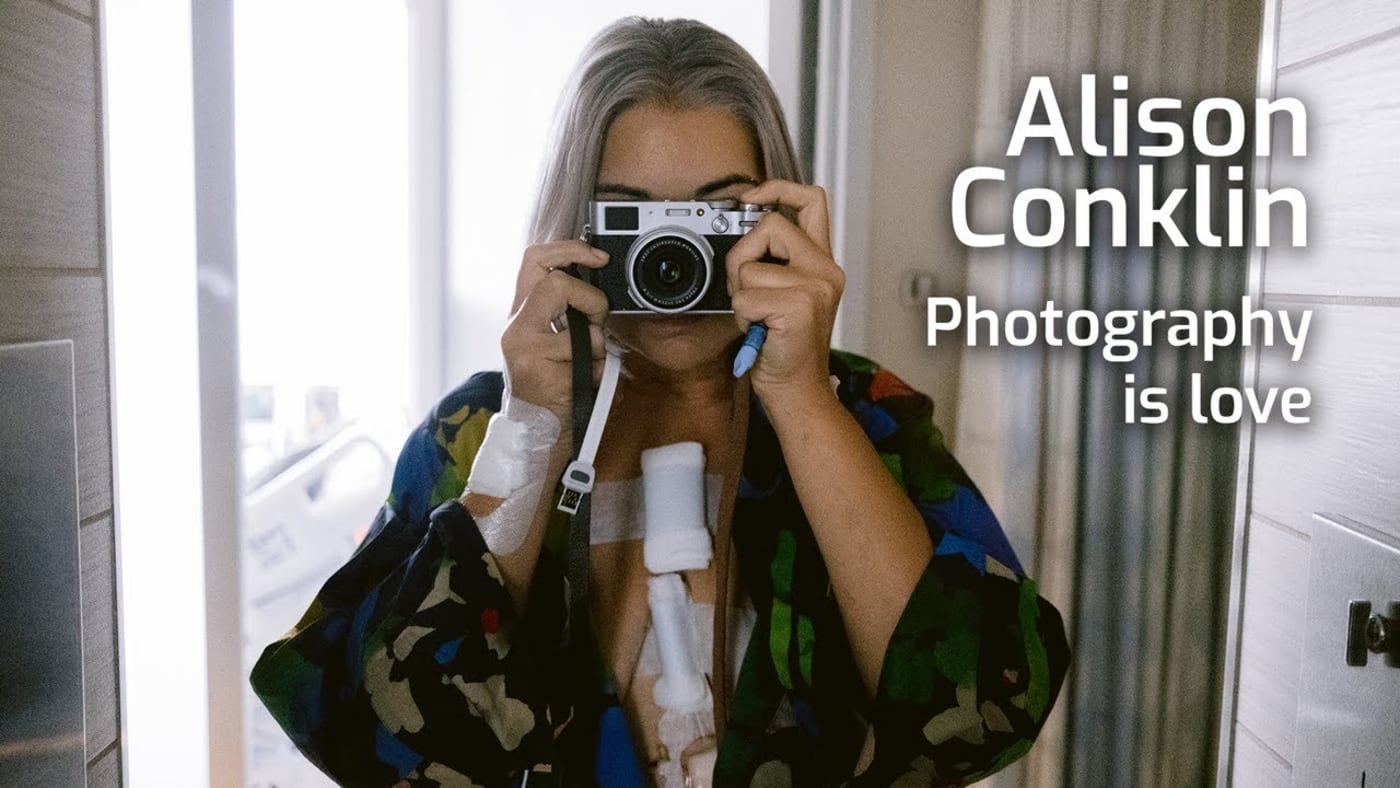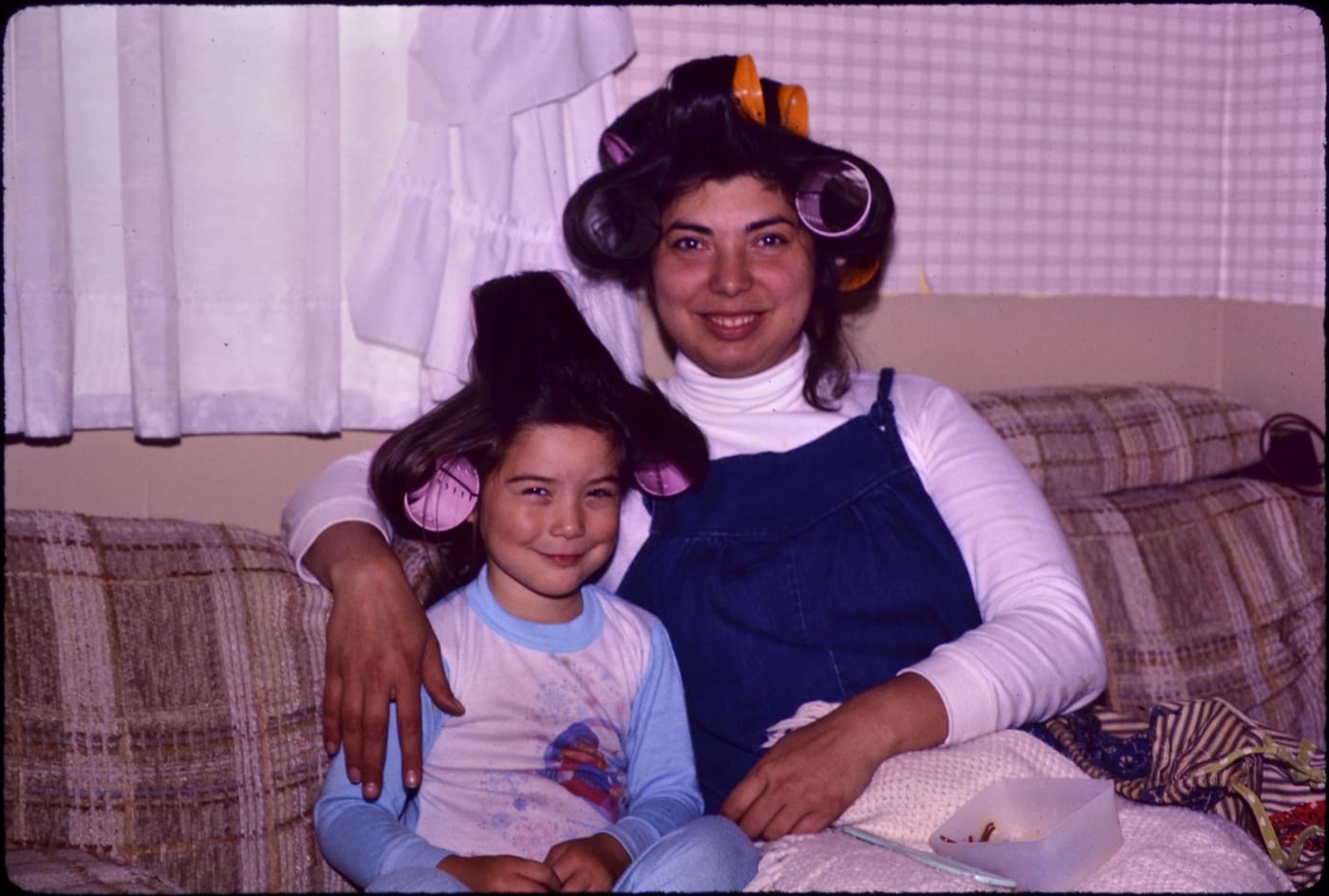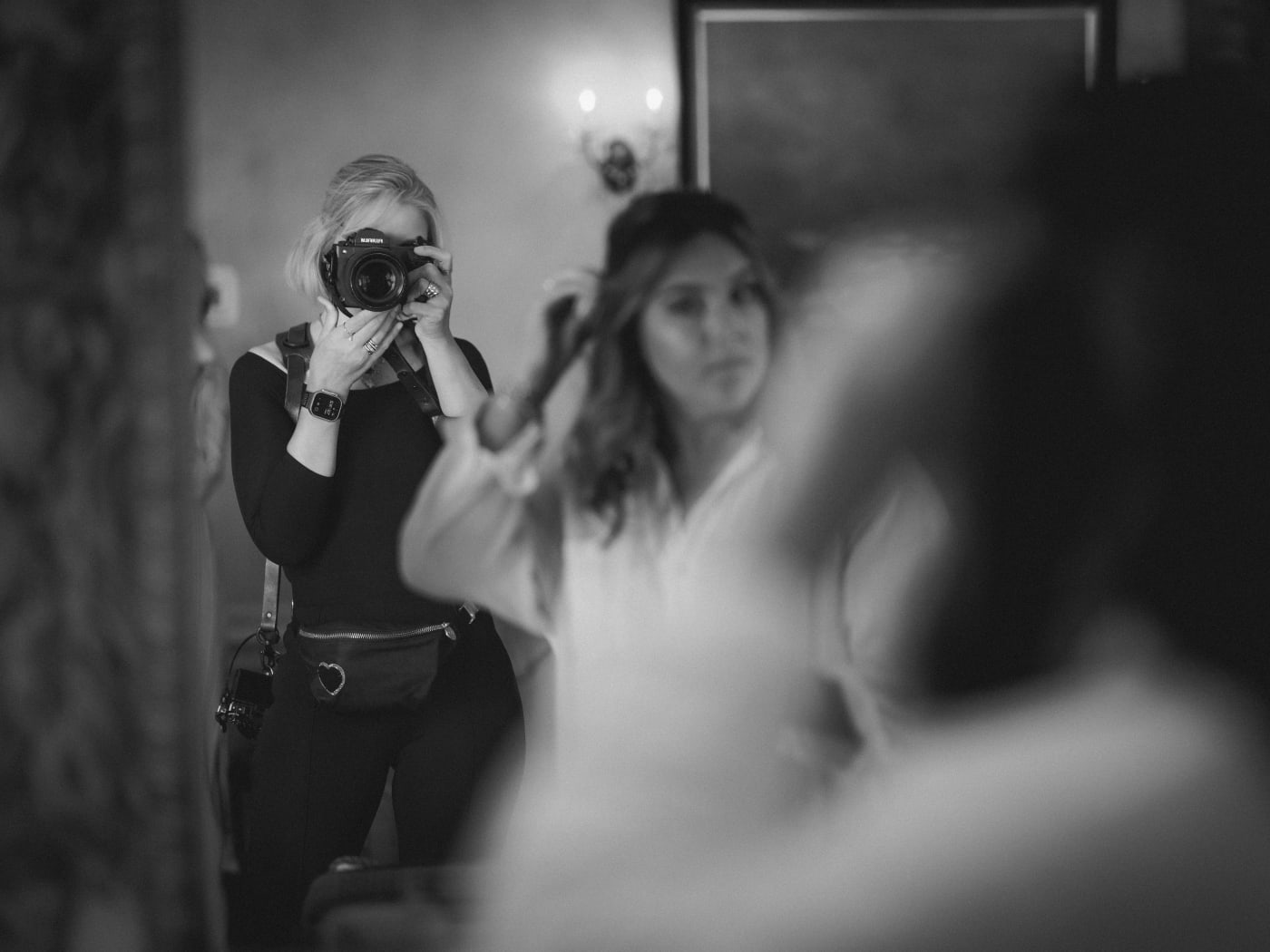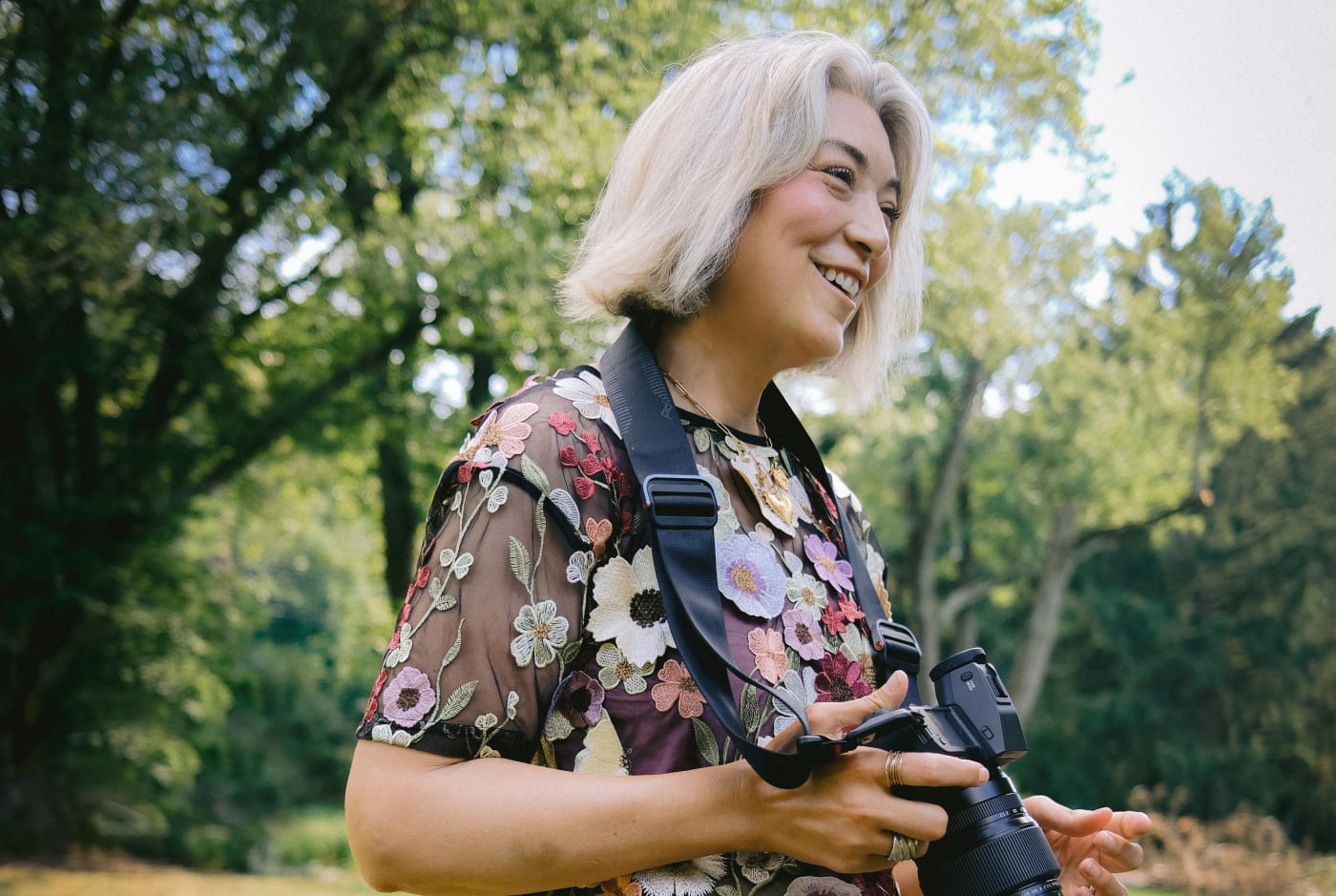Love, Loss, and New Life: Alison Conklin's Journey and the Power of Photography
Alison Conklin is no stranger to grief. But the photographer has embraced her craft's ability to heal by transporting the heart and mind.
Wayne Grayson • Nov 22, 2024

Call them what you will. Signposts. Tragedies. Wounds. Our shared human burden is that we all face these turning points in life where the road as we know it abruptly ends. Many times our stories are shaped by how we move beyond them—if we are able to at all.
Photographer Alison Conklin's turning point came at an unfair time.
When she was just 14 years old her mother died in front of her in the kitchen of her family's home. A hole ripped in her universe, time nonetheless moved forward and very soon things like helping prepare her mother's funeral were now among Conklin's responsibilities.
Handing her a tattered box full of negatives and slides, Conklin's father asked her to create a wall of photos to memorialize her mother's life. A life now in little pieces; candid color prints capturing moments, pieces of seconds, that defy physics and the very natural order of things: beginning, middle, end. In those photos of her mother, Conklin saw no end, no kitchen tragedy, no life limping onward upon grief's phantom limb.
"I could hear my mom laughing in the photos," Conklin recalls. "And at that moment I realized the power of photography. The fact that I could look at an image and feel a specific way: feel the love of my parents or the love between myself and my parents. Just because they photographed everything.
"So from that moment on I just was obsessed with photography."

A Window Into Joy
Soon after, Conklin asked her dad to teach her how to develop film negatives. He built her a dark room in the basement of their home and for the next four years, that's largely how Conklin spent her time: taking photos and manifesting them from the dark.
At 18, she became a professional. "Someone was like, 'Hey, would you want to shoot a wedding?'" Conklin recalls. "I had never even been a guest at a wedding before, so it was terrifying."
Beyond the stress of the expectations that being paid layers on top of what was previously a hobby, Conklin deeply understood the privilege it is to be invited to capture such an important time in someone's life.
"I felt that and still feel it now," she says. "I realized after losing my mother what a gift it is to be in a room with everyone you love....This moment is amazing and you can't get it back. You can never replicate a situation where everybody is in this space celebrating something."
Even now, 26 years into her career, that understanding adds a sense of urgency to Conklin's mindset when doing her work. She feels a huge responsibility in stopping time for people, in giving them a window into joy or a time where they felt whole.
"Things are going to happen. Things are going to change. Sometimes for the better, sometimes for the worse," she says. "So I go into a job with that knowledge. If I'm photographing a beautiful moment between a grandmother and the bride or a groom and his father, that might not be something that they look at immediately when they get their pictures back. But as the years go by they're going to look back at some of these photos and say 'I remember having that conversation with my dad at that moment.' Having that picture to go with that memory is irreplaceable."

Conklin's reverence for individual moments was deepened even further by a more recent and more personal challenge. After receiving a diagnosis that left her with only six months to live, Conklin underwent a heart transplant. That was nearly two years ago.
"It is absolutely incredible that I am even here," she says. "Any day that I wake up and can say good morning and good night to the people that I love, that is a celebration. For me, everything in life is beautiful. I'm just so happy to be here for all of it. And I think that's sort of the breath I bring into shooting a wedding or for one of my clients. I'm grateful to be here and I'm going to photograph this moment and capture it in a way that's going to tell your story so that you always have this gift in front of you."
Creating Timeless Images
Conklin's photographic style is influenced heavily by the weight of the responsibility she feels. "I believe wedding photography should be timeless," she says. "It should be classic and it should be something that will make sense in 10, 20, 30 years down the road. So I just sort of continue to stay true to what I believe the power of photography is: candid moments and celebrating the actual joy and love that is unfolding in the moment."
Conklin's camera of choice is a Fujifilm GFX100, a powerful medium format camera that produces breathtaking images.
"I started with Canon because that was the camera by parents had. But as I moved forward in my career, I fell in love with the Fujifilm system. Their color science and the ease of picking the camera up and learning how it worked was very intuitive," Conklin says. "So I love my GFX because I feel like the images I create with this camera themselves look a lot different than everybody else's. Not everybody is photographing weddings on the medium format."
Because the GFX100 has a 100 megapixel sensor, it creates massive files. That means Conklin needs a memory card that is not only high capacity but also high-speed in order to avoid running into long buffer times as she shoots. That's why she depends on an OWC Atlas Ultra CFexpress Type B memory card when shooting with her GFX100.
"The files the camera creates are huge and all the space I can get on the 1TB cards is necessary. But beyond that, there is no lag time with OWC cards. It just keeps up with how quickly I'm shooting, no matter what.
"My entire goal and my entire brand is capturing those organic moments. These are candid images where I have to capture the exact moment. I can only do that if my gear is going to back me up and these cards do that. They've been such a great addition to my camera bag."

Tiny Monuments
Following an experience like the type of loss Conklin faced at 14, a life can go in wildly different directions. Ultimately, Conklin's has been saved twice: once by an old box of family photos and again by a gifted heart.
That experience has turned into a love of helping people build tiny monuments to their happiness.
In fact, Conklin always keeps a camera with her: a trusty Fujifilm X100. She documented her recovery from the heart transplant with that camera and now it accompanies her on trips to the dry cleaner and other mundane spots where beauty decides to make a visit.
"There's always something incredible," she says. "You can either go through your life with the mindset of 'nothing is a miracle,' or you can go through your life recognizing that everything is. I choose the latter. If the light is coming into a room in a gorgeous way, I'm going to capture that because I don't know if it's ever going to happen again.
"All these little things have to be in just the right place for us to be lucky enough to view these beautiful things in our lives. That's never lost on me."
Other topics you might like
Not Here That Long: Filmmaker Ty Evans Built a Career on Risk, Reward, Rails and Rotors
Updated on Dec 4, 2025
Check Out These Fun Wooden 1:1 Scale Replicas of Your Favorite Nikon Cameras
Updated on Nov 18, 2025
Viltrox’s New Spark Z3 TTL Flash Brings a Cyberpunk Aesthetic to Your Photography
Updated on Oct 28, 2025
 USA + International
USA + International OWC Canda
OWC Canda OWC Europe
OWC Europe


